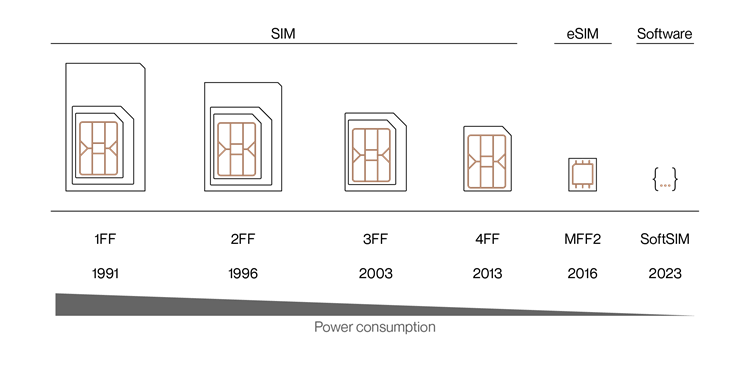Nordic Semiconductor and Onomondo bring ‘world’s first’ software SIM to low power cellular IoT
2023

Onomondo’s SoftSIM reduces SIM and BoM costs, simplifies design and lowers power consumption for cellular IoT end-products based on Nordic’s nRF91 Series
Nordic Semiconductor and Copenhagen-based Onomondo announce a collaboration that brings Onomondo’s ‘SoftSIM’ to cellular IoT end-products based on Nordic’s nRF9160 low power SiP. The collaboration between Nordic and Onomondo makes it easy for cellular IoT device makers to add SoftSIM to their nRF91 Series-based designs, simplifying development, reducing costs and shortening time-to-market.
Because cellular IoT leverages mature and widespread cellular infrastructure, network access requires each end-device to carry a unique Subscriber Identification Module (SIM). Traditional SIMs are physical devices that need to be plugged-in to cellular products, and later developments such as non-physical eSIMs still demand additional supporting hardware. SoftSIM is a “world’s first” 100 percent software IoT SIM alternative that is platform agnostic. The product is downloaded from the Cloud and then executed as software by the nRF9160 SiP’s embedded ARM Cortex-M33 application processor. The SoftSIM is using functionality implemented using Arm TrustZone security environment to secure assets.

Out-of-the-box cellular IoT connectivity
By combining Onomondo’s SoftSIM with Nordic’s low power nRF9160 SiP with integrated LTE-M/NB-IoT modem and GNSS, users have an ‘out-of-the-box’ connectivity solution that eliminates not only the need for the manufacture and shipping of physical SIM cards but also their associated overheads. In addition, SoftSIM eliminates the need for a physical SIM socket on the end-device design, reducing the bill-of-materials (BoM) and component costs, simplifying design, and decreasing the size of the end product.
Moreover, using SoftSIM enhances the nRF9160 SiP’s already sector-leading low power consumption by lowering idle mode power consumption almost completely since the SIM runs in software. Generally that means average savings of approximately 40µA compared to using a physical SIM or eSIM. Lower power consumption enables extended battery life or the use of smaller cells.
Enhancing battery life
“Nordic’s nRF9160 is the most power optimized and highly integrated cellular IoT SiP on the market, but we continuously seek to enhance battery life further,” says Kristian Sæther, Product Director – Cellular IoT, Nordic Semiconductor. “Now Onomondo’s innovative SoftSIM brings new benefits for users by consuming far less power than a traditional SIMs, while also reducing SIM overhead costs. That makes the collaboration between the two companies perfect for customers seeking cellular IoT deployments with better power efficiency, global coverage, and flexibility.”
“When it comes to reducing friction and driving efficiency in IoT, great progress has been made in making components and hardware more efficient and easier to deploy, but little work has been done on the network side. That’s until SoftSIM came along,” says Michael Karlsen, co-founder and CEO, Onomondo. “This collaboration with Nordic Semiconductor means that users can employ the nRF9160 and SoftSIM to eliminate the friction that physical SIMs and even eSIMs have forced on them.